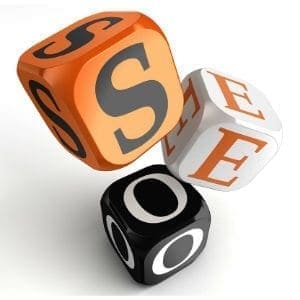
How to best work with OTAs is a perennially hot topic on eHotelier, so we jumped at the chance to interview Expedia’s David Hamblin, whose title is Senior Director, Market Management Asia Pacific for Expedia Lodging Partner Services.
What is your role within Expedia for starters?
The role of market management is having a relationship with hotels, making sure that we are providing them with right information to get the best out of working with Expedia. We help hotels put their product onto to our global brands – Expedia, Hotels.com, Travelocity and most recently Wotif – those are the big ones. Then we also have the Expedia Affiliate Network – EAN for short – and there we are offering hotels wider exposure again.
Our proposition for hotels is to be able to provide them with a global reach – across all the brands we have 150 sites, in 70 countries and 35 languages. We can take a product/hotel and put it out there globally, but do it in an appropriately localised way. The content will display slightly differently, each brand will decide how they display that content for their consumers – but one content load will go to every site and in every language immediately. Of course we localise the language, but it’s more than that. We know that Chinese customers are going to want a very different experience from an Indian customer; for example, many Indian travelers prefer to pay via deposit versus Chinese customers who prefer using UnionPay.
The global online booking space is complex, and with the rise of mobile and and wearables, the whole ecosystem is continuing to expand. To give you an example, say you are small hotel say based in outer Sydney. You want to attract Asian customers, which is a growing segment for Australian hotels, but how do you reach those customers? They will want to book in their local language, pay in their local currency, and also use a payment method that they are used to. Visa and Mastercard don’t have great penetration in many of the Asian markets.
There’s also a good chance they will be using multiple devices as they go searching – they might start on a desktop at home, use their iPad on the way to work, and go look at their iPhone in the evening to make a booking. Tracking that whole experience and providing it in an optimised way is something that Expedia does well.
Does the average hotel need to be on all platforms?
That’s our value proposition -that it’s one back-end for all platforms and brands from our side. Hotels can sign up to Expedia Inc (which is the overall company and Expedia is one of the brands) via Expedia Partner Central, which is our back-end for hoteliers. From there the hotels will appear on all our brands. We’re not saying you have to manage multiple brands differently; they’re just there and we have the technology to make sure you’re out there across the globe. Expedia spends a huge amount on technology every year – roughly $980 million last year – and that’s not just on the consumer side (the mobile experience, the multi platform experience), it’s also on the hotel side. By using Expedia Partner Central, hoteliers can get information and leverage our global data to make informed decisions.
Hoteliers can access our Market Watch to see things like how they compare to competitors and their demand and conversion rates. It’s a powerful tool that can be leveraged to increase bookings and profits. We’ve used our data to develop two new really good products out at the moment.
Sell Tonight
We know that mobile is increasing and we know that as mobile bookings increase, we’re also seeing that lead times – booking windows – start to shorten. If you’re a hotel with last minute rooms, how do you quickly get out them out into the marketplace? We developed Sell Tonight with the idea that instead of having to go through multiple steps, you can just put in a rate, add some inventory and then just press click. Immediately you’ve got rates out in the market for that last minute business.
Real Time Feedback
We’ve all seen the rise of online reviews and the importance they have on bookings and conversion. All our reviews come from verified customers, so hotels can be confident they are getting a true review. But unfortunately, hoteliers generally get their review information post-stay, so there is little they can do to mitigate an issue that may generate a negative review. Likewise, there is no way to leverage a really positive experience.
Real Time Feedback lets hoteliers have a conversation with the customer while they’re actually in the hotel. When a customer checks in, Expedia will send the customer an email saying “How’s your stay?”. At that point, it’s a very small interaction – a smiley face or a sad face – but they can also add comments. So if someone goes into a room and they have no towels, they can send “sad face- no towels” message. They can say “my air-con is not working” or whatever, and that message immediately goes into Expedia Partner Central. The hotel will get a notification email so they can rectify the issue while the guests are in the hotel.
Our preliminary numbers indicate that there are slight increases in review scores by hoteliers who are using Real Time Feedback. It’s services like that this that we will continue to invest in so that guests and hoteliers can better communicate. Hoteliers can leverage the information we have to make better informed decisions.
Many hoteliers have a love/hate relationship with OTAs and see them as a necessary evil. What are your pitches to turn that tide, or what are the biggest misconceptions hoteliers have about OTAs?
My response to a hotelier would be that we are one distribution channel across many. From our point of view, we want long term relationships with our hoteliers. We recognise that we’re just one of many channels that they could use to distribute product, so it doesn’t make a lot of sense not to have a long term relationship with them.
The hoteliers who have the best relationship with Expedia view it as distribution channel and they understand how to use it alongside other distribution channels. Our proposition to them is: global exposure, multi-currency, multi-brand and multi-payment methods. Our technology investments deal with the growing complexity in how consumers book, giving our hotels a way of tapping into that -and that’s a consumer trend, not an OTA trend, or Expedia trend. Consumers want to book across multiple devices and because these times are changing, they also want a (their own) local experience when they book, not one that is foreign to them.
For instance, the Chinese consumer wants to book in Mandarin and pay via UnionPay if possible. Their concerns are about safety, historic sites etc. Customers from Scandinavian countries tend to be much more OTA savvy. It is important to know how to address each type of consumer traveller.
What do you think is the future of the booking experience in the short term, as well as long term?
That’s a really interesting question. We’re sort of driven by a test and learn philosophy. What that means is that we generally make very small incremental changes.
So rather than trying to predict where the consumers are going to go, or where they will end up and taking the big bet, what we tend do is called the AB testing. We offer the consumer two choices then we’ll monitor which one is more successful. We then give them another two choices, and moves us in the right direction and helps us iterate and re-iterate our product. We don’t have to make big bets; we go in the direction consumers take us.
Last year we did two thousand AB tests on our site. There’s a good chance that when you go onto our site, you’re going to see a different variations each time, depending if you’re a test group or not.
In terms of future, one of our propositions to hoteliers is things like Package Paths -the ability to book a package combining air travel and your hotel together. We know that the people who book packages generally book further out, stay longer and are less likely to cancel bookings, because cancellations are generally more restrictive. We could potentially offer package products at a lower price. Hoteliers are willing to do that because it’s more of an opaque booking, in terms of that everything is combined together, plus they’re going to get a longer lead time with booking. It’s a good proposition for both hoteliers and consumers.
Who owns the customer then? If packaging is a trend, it makes it increasingly hard for hotels to make direct bookings.
Well I think it’s again hoteliers coming down and looking at us as a distribution channel. I don’t think that packaging is something that they can easily offer on their own site, so it’s something they can work get through Expedia as a value add. It’s about hotels knowing what they want to get out of Expedia or another OTA – or any other channel generally – and then deciding how to use maximise their overall distribution strategy.
How they use us, that’s the hotelier’s choice, but I would say that we have a significant value proposition. We offer hoteliers a whole array of products and a simple way to use them and a simple way of accessing our data. We have a large investment in the market management team, people on the ground to advise hotels on what’s best for them and the best way to work with Expedia.
Is the pricing structure going to change?
We don’t generally comment on our pricing.
But you are a distribution channel, an expensive one in the minds of many GMs.
I would refute that. I would say over the years we’ve seen our commission model continue to trend down. The directors have been fairly open the year about passing on reduced costs – that’s what we would like to do in the long term and again that’s going back to the partnership. We have an option for hoteliers to use as a distribution channel in a very competitive space.
We do have different business models for hoteliers. Expedia Travellers Preference gives the hotel the option to provide the consumer with two different ways of booking their hotel. Expedia Travellers Preference tells consumers that they can either book and pay on Expedia or they can decide to book on Expedia, but pay the hotel directly. The first option is what we call the merchants booking – or Expedia Collect, the other one would be what we call the agency booking which is Hotel Collect.
It’s an example of us being able to use our technology to provide the hotels the opportunity to talk to different customer sets. We are trying to use our technology to create new business models, which gives hoteliers the opportunity to increase conversion. What we know is that there are two subsets of consumers who want to book. There isn’t always a 100 percent overlap, so by providing two different business models to a consumer, we increase conversion and increase production for the hotel.
Where do you see loyalty programs going?
Expedia and Hotels.com both have loyalty programs. Hotels.com has a very simple loyalty program which is buy 10 room nights, get one free. It is very simple, very easy to use, which I think has a place in the market. In terms of hotels and what hoteliers want to use – it’s really up to them. Hotels need to make sure that they understand what they want to achieve in terms of having a loyalty program in place and how that affects production.
Is there marketing campaign within Expedia that hoteliers can leverage? How does your search engine work?
We have a hotel sort order, a proprietary algorithm, that takes into account a lot of factors, but generally things like reviews, the quality of the images, and the quality of the content or description of the property. We provide feedback via Expedia Partner Central, letting hoteliers know if their content is not 100 percent, so hotels know what they can do to get better conversion for a property. At the end of the day, from a sort order point of view, we want the most appealing properties up there for the consumer. Reviews are one factor, but at the end of the day, the main factor is conversion. Conversion is basically how appealing a property is to a consumer and that is a mix of reviews, content, images, competitive set – what else is out there and what else are other hotels are offering at the same time. We try to put all this information in front of the hotels so that they can make informed decisions around what they want to do to capture business. That’s the idea of Expedia Partner Central.
What kind of clarity can you see on compsets?
Hoteliers can log-in and look at the compset to see what their competitors are selling, availability and their rate structures, and how they might want to position or reposition themselves. We’ve found in speaking to hoteliers around the world, that they were going to other websites and OTAs and were writing down the competitor’s rates and putting them on an excel spreadsheet. We said,“You don’t need to do that because we have that information readily available!”
How do you see your relationship with hotels going forward – frenemies?
We recognise that a lot of the demand that would have gone to the hotel website will come to our site first and then go onto the hotel website. I think hotels recognise this as part of their distribution strategy. Hotels will continue to work with us to benefit from so many things – the global exposure, the mobile exposure and wearable exposure, the multi device experience, the packages, being able to have ETP as an option, giving the consumer multiple options to pay…these are all things that are a big technology investment for us that hotels can leverage without paying – until someone makes a booking.
It’s our job to help our hotel clients get the most out of Expedia Partner Central, so they can then understand how to get the best content, to get the best reviews, how to leverage the conversion data, the competitor data, and the demand data we give them to help them decide how they want to use our site. All of that is at their fingertips, real time – that’s our proposition.



















